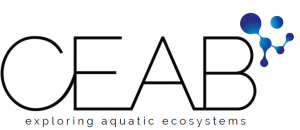HFSP (2011-2015). Ref. RGY0084/2011.
In collaboration with: Will Ryu (University of Toronto, Canada) and Ilya Nemenman (Emory University, Atlanta, USA).
A dream of systems biology and neuroscience is to understand how molecules, neurons, and networks, produce behavior at the holistic level. While most such work has been done from a reductionist perspective, we propose to take a holistic and much more integrative approach to study the adaptive movement strategies of a roundworm C. elegans in response to a range of spatiotemporal sensory inputs. Our interdisciplinary team will comprehensively study and model the thermal information processing system and motor control underlying the adaptive movement strategies of C. elegans. Our work will focus on answering questions such as: How do physical and statistical properties of the environment affect the worm behavior? Is the worm optimal in utilizing available information? Can the worm’s searching patterns be predicted using principles of optimized search with appropriate physical constraints?
![]()
Worm tracking. Worm trajectories can be tracked as they freely crawl on the surface of an agar plate (left). Image at the right is an example of a raw unprocessed image data from the worm tracker.

